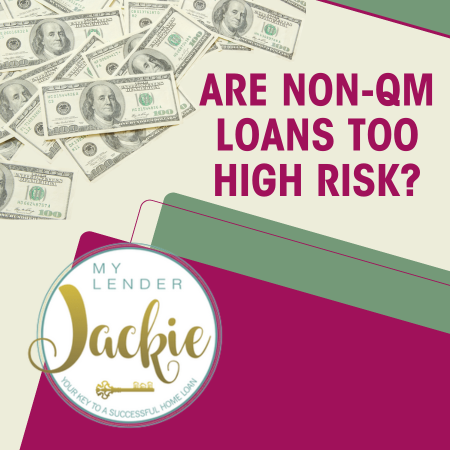
Some people hear the term and immediately think “risky” or “high interest.” But the truth is, non-QM loans aren’t the wild west of lending—they’re simply an alternative option for those who don’t check every box on a traditional loan application. When you work with a team that specializes in non-QM loans, you can rest assured that you’re in good hands.
Let’s break down what non-QM loans really are, why they’ve been misunderstood, and who can benefit from them.
What is a Non-QM Loan?
“Non-QM” stands for non-qualified mortgage, meaning the loan doesn’t meet the same strict guidelines set by government-backed agencies like Fannie Mae and Freddie Mac that regulate traditional loan.
That doesn’t mean they’re inherently unsafe or shady; it just means they follow a different set of rules and offer more flexibility in how a borrower’s ability to repay is evaluated.
Common types of non-QM loans include:
-
Bank statement loans (great for self-employed borrowers)
-
Asset-based loans
-
DSCR loans (Debt-Service Coverage Ratio, ideal for real estate investors)
-
Interest-only loans
-
Loans for buyers with recent credit events like bankruptcies or foreclosures
Why Do People Say Non-QM Loans are Risky?
There is a common misconception that a non-QM loan is a dangerous mortgage option. Much of the hesitation around non-QM loans comes from a misunderstanding—and often, from confusion with the pre-2008 lending practices that led to the housing crisis. But today’s non-QM loans are regulated, documented, and require proof of income or repayment ability (just in more flexible ways).
Another common concern people have are about the interest rates you get with a non-QM loan. While it’s true that the rate may be a bit above the rate you’ll get with a conventional loan, the benefits generally make up for this discrepancy. You can learn more about today’s interest rates here.
What Makes a Non-QM Loan the Smartest Choice for Some Borrowers?
For the right borrower, a non-QM loan can be a strategic financial tool, not a fallback option. Here’s why:
More Flexibility for Self-Employed Borrowers
If you’re self-employed or own multiple businesses, traditional loans can be frustrating. When your tax returns don’t show the full picture of your income, you may not qualify even though you’re more than capable of handling the loan. For a non-QM loan, we can use bank statements, not tax returns, to verify income—giving you credit for your actual cash flow, not what you write off.
Ideal for Real Estate Investors
Many investors use DSCR loans, which qualify based on a property’s rental income—not your personal income. This lets you scale your portfolio even if your personal debt-to-income ratio is maxed out. In a market with strong rental demand, this allows you to take advantage of an opportunity when you might not fit the conventional mortgage mold.
Helpful After Credit Challenges
If you’ve had a bankruptcy, short sale, or foreclosure in the recent past, a non-QM loan can help you get back into the market without waiting 7 years for a conventional approval window.
Customizable Terms
Some non-QM loans offer interest-only options, longer fixed-rate periods, or balloon payments, which can be tailored to short- or medium-term investing strategies. The name of the game with a non-QM loan is flexibility.
The Bottom Line
Non-QM loans aren’t for everyone—but for many buyers, they’re the right fit. Whether you’re an entrepreneur, investor, or someone with a unique financial picture, non-QM lending can help you move forward when conventional lending says “not yet.”
They’re not high-risk; they’re high-adaptability.
If you’ve been told “no” by a traditional lender, don’t give up on your home or investment property dreams. A non-QM loan might just be the solution that helps you move forward; contact us any time to learn more about how we can help you reach your goals.

